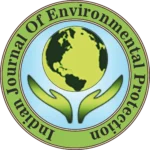IJEP 43(4): 368-375 : Vol. 43 Issue. 4 (April 2023)
Kudrat-E-Khuda Babu*
Daffodil International University, Department of Law, Dhaka, Bangladesh
Abstract
Plastic derived product has now become an essential commodity in our daily life. A large volume of used plastics poses serious environmental threats resulting in danger to marine life, a decrease in soil fertility and pollution of groundwater. For a developing country, like Bangladesh, it is very difficult as well as challenging also to maintain and manage the control of the pollution of this vast plastic waste. The major reasons for deficient plastic management in Bangladesh are scarcity of facilities, infrastructure development and inadequate allocation for waste management. Neither is any significant or effective action taken or there is no particular or specific law to control the ongoing plastic pollution. The prevailing environmental laws in the country are not adequate enough to address the problem and their implementations are also largely absent. On the other hand, plastic recycling (recycling is reprocessing of used materials from their original state into a new form or sometimes intended for solid-state disposal) is becoming more popular day by day in other countries but unfortunately, the scenario of plastic recycling in Bangladesh is not satisfactory at all. The existing paper aims to determine the causes of plastic pollution and its impacts on the environment and livelihood; to scrutinize the prevailing related laws and policies; to briefly analyze the plastic recycling scenario in Bangladesh and to conclude with recommendations to stop plastic pollution in Bangladesh. The paper makes use of secondary data, that is books, articles, national and international law reports, acts, etc.
Keywords
Bangladesh, Environment, Impacts, Plastic, Plastic pollution
References
- Islam, M. S. 2011. Prospects and challenges of plastic industries in Bangladesh. J. Chem. Eng., 26(1):16-21.
- Hossain, S. 2009. Polyvinyl chloride, vinyl chloride, chlorine. Time to protect earth: Safe life from plastic pollution. Available at : http://www. studymode. com/essays/Time-To-Protect-Earth-Safe-Life-From-212014.html.
- Shimo, M.H.U. 2014. Plastic recycling in Bangladesh, what needs to be done? Available at: https://core.ac.uk/ download/pdf/38116820.pdf.
- Sultana, N. 2019. Plastic recycling in Bangladesh. Adv. Env. Waste Manage. Recy., 2(1):1-4.
- Faruque, A. 2017. Environmental law: Global and Bangladesh context. New Warsi Book Corporation, Dhaka.
- Waste Concern. 2019. Bangladesh waste database-2019. Available at : http://wasteconcern.org/2019/02.
- Azkar, M.B.I., S. Chatani and K. Sudo. 2012. Simulation of urban and regional air pollution in Bangladesh. J. Geophys. Res. Atmos., 117(7): 1-23.
- Creswell, J. W. 2014. Research design: Qualitative, quantitative and mixed methods approaches. Sage Publication. California.
- OECD. 2018. Improving plastics management: Trends, policy responses and the role of international co-operation and trade. OECD Environment Policy Papers No. 12. OECD Publishing, Paris. doi : 10.1787/c5f7c448-en.
- BEMP. 2002. A compilation of environmental laws. department of environment and Bangladesh environmental management project. Available at : https://assets.publishing.service.gov.uk/media/57a08c2fe5274a31e0001058/ R8161-Section 2.pdf.
- Wagner, J. 2012. The effects of plastic bags on the environment. Available at : https://www. healthguidance.org/ entry/14901/1/the-effects-of-plastic-bags-on-environment.html.
- UNEP. 2018. The state of plastics. World Environment Day Outlook 2018. Available at : https://www.unenviron-ment.org/resources/report/state-plastics-world-environment-day-outlook-2018.
- Brandrup, B. and M. Menges. 2006. Recycling and recovery of plastics. Hanser Publishers, Cincinnati.
- Strong, A. 2006. Plastics: Materials and processing. GGS Book Services, New Jersey.
- Derraik, J. G. 2002. The pollution of the marine environment by plastic debris: a review. Marine Poll. Bull., 44(9): 842-852.
- Hossain, P. M. N. 2016. The prospects and challenges of plastic industries in Bangladesh. Available at : https://www.theseus.fi/bitstream/handle/10024/105774/Thesis.pdf?sequence.
- Convery, F., S. McDonnell and S. Ferreira. 2007. The most popular tax in Europe? Lessons from the Irish plastic bags levy. Env. Resour. Eco.,38:1-11.
- Hopewell, J., R. Dvorak and E. Kosior. 2009. Plastics recycling: Challenges and opportunities. Philos. Trans. R. Soc. Lond on B Biol. Sci., 364(1526): 2115–2126.
- Brinkmann, S. and S. Kvale. 2015. Interviews: Learning the craft of qualitative research interviewing. Sage Publications, California
